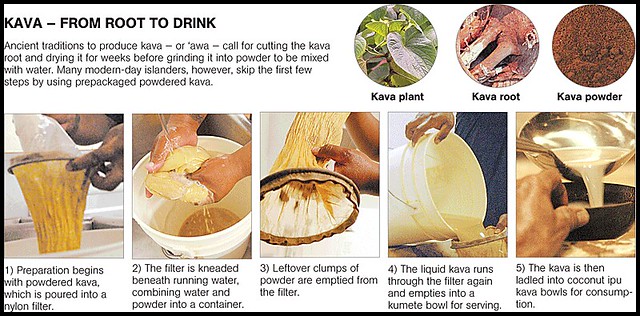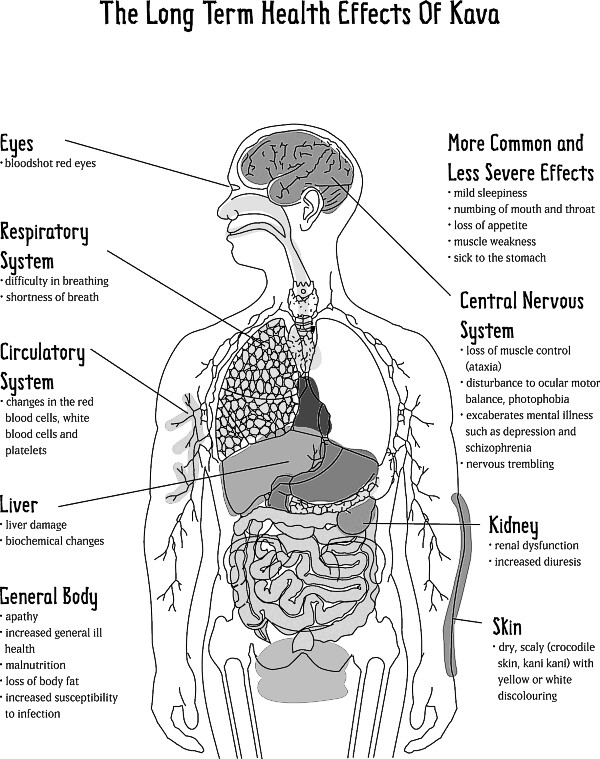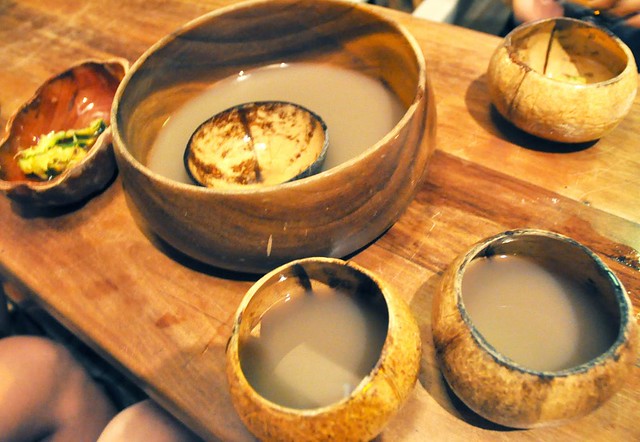
Talk about your non-story. A new Kava bar set to open in Berkeley is planning on not serving alcohol and you’d think they had re-invented the light bulb. Between the bar’s own application claiming it “aims to be Berkeley’s first and only alcohol-alternative bar” and Alcohol Justice tweeting the news with their characteristic glee assuming it must be anti-alcohol, there’s not a lot to the actual story. Not to mention the way in which the Bay Area BizTalk author is spinning it so that she claims it to be “innovative,” saying that “while the common thread is serving booze, one business that plans to open in Berkeley could change that.” Puh-leeze!
Okay, first let’s dispense with the innovation or that it’s Berkeley, or anywhere for that matter’s, “first and only alcohol-alternative bar.” Berkeley and the rest of the world has thousands, maybe millions of them. They’re called cafes, coffeehouse, tea bars, ice cream parlors, and on and on. Starbucks alone operates nearly 24,000 alcohol-alternative bars, not including the few that have been test-marketing alcohol sales in the evenings. As for Alcohol Justice’s churlish remark that “If this takes off, expect Bud Light Kava,” they’re displaying their usual cluelessness. Kava is a plant “used to produce a drink with sedative and anesthetic properties. Kava is consumed throughout the Pacific Ocean cultures of Polynesia, including Hawaii, Vanuatu, Melanesia and some parts of Micronesia. Kava is sedating and is primarily consumed to relax without disrupting mental clarity. Its active ingredients are called kavalactones. A Cochrane Collaboration systematic review of its evidence concluded it was likely to be more effective than placebo at treating short-term social anxiety.”

The scientific name for the specific plant used to make the kava drink is known as “Piper methysticum,” which means “intoxicating pepper.” So essentially it’s a different, milder high, but is used in much the same way and for the same purposes as many people use alcohol and mood-altering drugs. You just missed celebrating the Feast of Papa-Lea, the God of Kava Drinking, on September 8. Still, it’s not exactly a health drink. “People taking certain kava-based drugs and dietary products have suffered liver damage or liver failure as a result of hepatotoxicity. Consequently, kava is regulated in a number of countries. In the EU it is strictly prohibited only in Poland.” So the bar may be not serving alcohol, but that’s because they’re focusing on another, somewhat similar product. If it were more popular in the U.S., and regulated like alcohol, you can bet Alcohol Justice would be against it, and singing a different tune.

I want to be clear that I’m not against Kava. I’ve never had it but would try it in a heartbeat if offered a chance to sample it. But I do want to point out the incessant hypocrisy of prohibitionist groups like Alcohol Justice who are so against alcohol in our society that they’ll celebrate the fact that a bar is taking a different theme to reach a specialized clientele and choosing against serving alcohol in favor of a different mood-altering drink. One they’re against, and the other … well, they don’t really understand or care about so long as it’s not alcohol.
Personally, I hope the MeloMelo Kava Bar does open. It sounds interesting, and worth trying, but please let’s dispense with the notion that it’s going to start a wave of non-alcoholic places that will squash alcohol’s prominence as the beverage of choice at bars across the nation. And especially that they’ll be characterized as “alcohol-alternative bars.” According to the Bay Area BizTalk article, “Tea, yerba mate and kombucha will also be on the menu at MeloMelo, but the bar will not serve food or ‘coffee bean-related’ products.” And let’s not forget that MeloMelo is saving themselves thousands by not buying an expensive liquor license. So these are marketing decisions to differentiate themselves from coffeehouses, and their not serving alcohol is not exactly something that’s likely to “catch on” given that there are already thousands of places where alcohol is not served already. Hell, every time someone actually tries to sell alcohol in a place where it’s traditionally not sold — like Starbucks or Burger King — the hue and cry from the wingnut prohibitionists is deafening.

But let’s review the real issue here, and the ridiculousness of the concept of being an alcohol-alternative establishment. I think I see a way out. When you’re at a bar, or restaurant or whatever and don’t want to order something alcoholic off of the menu; don’t. Now, was that so hard? There are all sorts of people in the world, and at any given time in any number of moods. Sometimes you want or need a drink, sometimes you don’t. I’m not a big fan of seafood, in fact hate most if it and could most likely live happily my remaining days if I never saw a fish on my plate again. But I’m not boycotting restaurants with seafood choices on the menu. I just don’t order any of them. But the prohibitionists would rather limit everybody’s choice and simply not have alcohol available for legal adults to enjoy because a minority of them might not be able to handle themselves, in effect punishing those of us who can. So how about we have alcohol-alternative people and give the rest of us the ability to choose for ourselves how we we want to live our lives?

I wonder how long it will be before Carmelo Anthony’s agent sends MeloMelo a cease-and-desist order.
Kava is the ‘national’ drink of Fiji. There are kava bars in most cities, towns and villages there. The upstairs area of the Suva farmers market is devoted to selling spices and kava. Kava is almost everywhere in South Seas islands. It’s sold by the ‘year’. Eight year kava is considered tops.
Good kava is the root, not so healthy kava contains roots plus stems of the plant.
Right on, Jay & Paul!